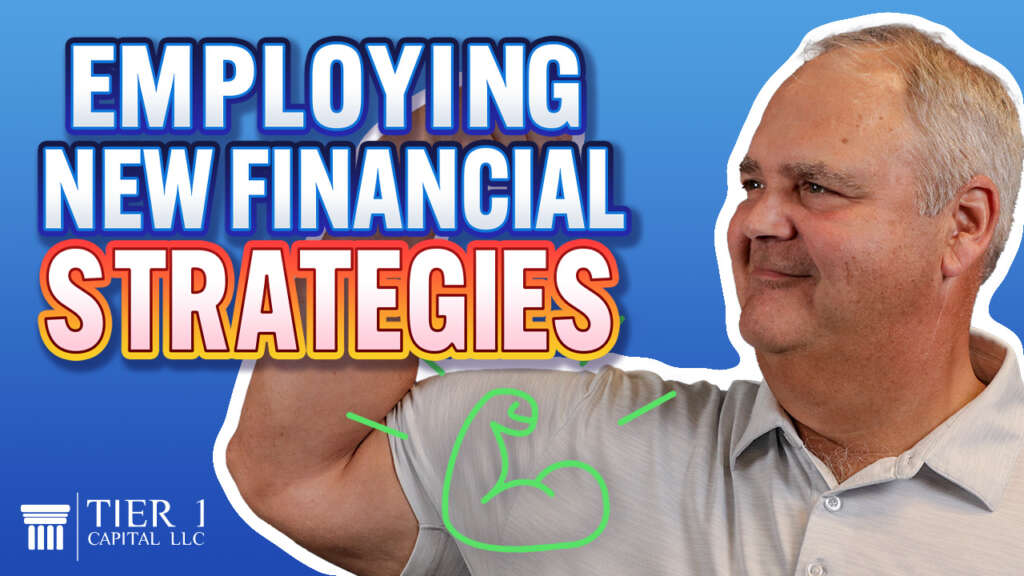
Have you been looking at your finances lately and realized it’s time for you to kick it into gear? Here’s a secret. The strategies that got you to where you are today are not going to be the same strategies that are going to move you forward toward financial freedom.
Most financial strategies promoted out there leave you out of control when you really need it. What do I mean by that? Well, you may be doing all of the right things according to conventional wisdom, paying off your mortgage as soon as possible. Living a debt-free lifestyle. Maybe you’re paying cash for your cars. Maybe you’re investing in the market with your IRA or your 401K. But here’s the trick. All of these things leave your money at risk. Even if you’re investing in real estate, you don’t have any liquid money.
So what happens when it’s time to finance something? Because everything in life is financed. You either pay interest to use someone else’s money, or you give up interest by paying cash. But where is the solution? Where is the financial freedom in this?
You see, following conventional wisdom puts your money out of reach when you need it most. And consequently, that forces us into borrowing when we have a lot of money, we just don’t have access to it. And consequently, this causes frustration. We’re frustrated because why do we have to borrow when we have all of this money sitting in these other accounts?
Not to mention some of our clients do have money and accounts that they do have access to. But they don’t necessarily want to access that money because they’ll either be locking in losses or making themselves pay a huge tax bill next April.
So here’s really the point. What’s the use of having money if you can’t use it when you need it or you want to use it either for an emergency or an opportunity? Again, your money’s inaccessible. So what’s the solution?
I would argue that most of life’s frustrations come from not having access to money when you really want or need it. So how do you transition from this frustrated way of life to a life of financial freedom?
There’s one answer and one answer only. It comes in being in control of your cash flow and your assets. And you see, when you view things through the lens of being in control, all of a sudden your decisions become easier to make. You’re making decisions with much greater clarity because ultimately it’s really simple.
You say, If I do this, will I be more in control of my money or less in control of my money? And if you’re not in greater control, don’t do it. It’s that simple.
Let’s take a look at an example. Let’s say you want to buy a car and you go into the actual bank And they say, okay, you could finance over five years and pay 6%, or you could finance over seven years and pay 9%. Which option are you going to choose?
Here’s what happened.
The bank took your eye off the ball. They positioned it in a way that focuses on the interest rate. The five-year loan has larger monthly payments. The seven-year loan has smaller monthly payments. Again, when you’re looking at things through the lens of being in control of your cash flow, the decision is easy.
Another great example of this is with qualified retirement plans. Money goes into these plans on a tax-deferred basis. Meaning, you don’t have to pay tax on that income in that year. However, what you’re actually doing is postponing that tax liability into the unknown future. These are just two examples of how financial services companies, and financial institutions, get us to do what’s in their best interest but is actually detrimental to us.
So if I could give you one piece of financial advice, it’s this. Keep your eye on the ball. Keep your focus on controlling your cash flow and your cash. And that is a great starting place. If you’d like to get started with our process to put you back in control of your cash flow and make your cash flow as efficient as possible. Schedule your free strategy session today.
Or if you’d like to see exactly how we put this process to work for our clients, check out our free
web course right on the homepage. The Four Steps to Financial Freedom.
And remember, it’s not how much money you make, it’s how much money you keep that really matters.
